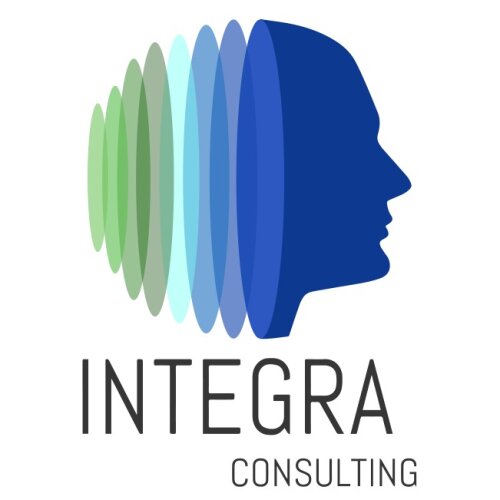Best Nonprofit & Charitable Organizations Lawyers in Guatemala
Share your needs with us, get contacted by law firms.
Free. Takes 2 min.
Or refine your search by selecting a city:
List of the best lawyers in Guatemala
About Nonprofit & Charitable Organizations Law in Guatemala
In Guatemala, nonprofit and charitable organizations play a vital role in addressing social issues and supporting community development. These entities are typically formed to pursue activities that benefit the public interest, such as educational, cultural, health, and environmental initiatives. The legal framework governing these organizations ensures they operate transparently and effectively in contributing to society. Such organizations are required to register and comply with local laws to achieve legal recognition and benefit from certain exemptions and advantages, such as tax reliefs.
Why You May Need a Lawyer
Legal assistance is often crucial when navigating the complexities of nonprofit and charitable organizations in Guatemala. Here are some common situations where legal help may be necessary:
- Formation and Registration: Setting up a nonprofit involves understanding different legal structures, compliance with registration requirements, and drafting necessary documents like bylaws.
- Regulatory Compliance: Organizations must adhere to financial and operational guidelines enforced by the government, requiring periodic legal consultation to ensure ongoing compliance.
- Tax Exemptions and Liabilities: Navigating tax regulations and securing tax-exempt status can be complex, necessitating expert legal advice to optimize financial operations.
- Conflict Resolution: Disputes may arise internally or externally, and legal representation is essential in mediating and resolving such matters.
- Contractual Agreements: Drafting and reviewing contracts for donations, partnerships, or employment requires precise legal guidance to protect organizational interests.
Local Laws Overview
The legal framework governing nonprofit and charitable organizations in Guatemala includes various regulations and statutes. Key aspects include:
- Legal Status: Organizations must register with the Registry of Legal Entities (Registro de Personas Jurídicas) and comply with the Civil Code and Commercial Code.
- Tax Regulations: The Guatemalan tax authority (SAT) provides guidelines for tax exemption eligibility, reporting, and liabilities for nonprofits.
- Reporting Requirements: Annual financial and operational reports are mandatory for maintaining transparency and compliance.
- Governance Structure: Nonprofits must outline clear governance structures, including boards and committees, to ensure accountability and effective management.
- Foreign Funding and Operations: Regulations govern the acceptance of foreign donations and international cooperation, with specific requirements for reporting and usage.
Frequently Asked Questions
1. What is the legal procedure for establishing a nonprofit in Guatemala?
The process includes selecting a suitable legal structure, drafting bylaws, registering with the appropriate legal entities, and obtaining necessary licenses and approvals.
2. Are there any tax benefits for nonprofits in Guatemala?
Yes, registered nonprofits may qualify for tax exemptions, including income and sales tax benefits. However, specific criteria must be met to obtain and maintain these benefits.
3. How can nonprofits ensure compliance with local laws?
Regularly consulting with legal advisors, adhering to reporting requirements, and staying updated on regulatory changes are vital for compliance.
4. Can a nonprofit organization engage in commercial activities?
Yes, but such activities must align with the organization's mission and any profits generated should be reinvested into furthering its charitable objectives.
5. What are the reporting requirements for nonprofits in Guatemala?
Nonprofits must file annual financial statements and activity reports to relevant authorities to maintain transparency and legal compliance.
6. How are conflicts within a nonprofit organization typically resolved?
Conflicts are often resolved through mediation and legal arbitration, involving legal counsel to facilitate fair resolutions.
7. Can a foreigner establish a nonprofit organization in Guatemala?
Yes, foreigners can establish or participate in nonprofit activities, provided they comply with local laws and registration requirements.
8. What is the role of the board of directors in a nonprofit?
The board provides governance, strategic direction, and oversight, ensuring that the organization adheres to its mission and legal obligations.
9. Are there specific regulations for receiving international donations?
Yes, international donations are permissible but must be reported and managed in accordance with Guatemalan law, ensuring transparency and accountability.
10. What legal protections are available for volunteers in nonprofit organizations?
Volunteers are afforded protections under local labor laws, including safety regulations and rights, despite not being formal employees.
Additional Resources
For further assistance and information on nonprofit and charitable organizations in Guatemala, consider reaching out to the following:
- Registro de Personas Jurídicas: The governmental body responsible for the registration of legal entities.
- Superintendencia de Administración Tributaria (SAT): Provides guidance on tax obligations and exemptions.
- Asociación de Entidades no Lucrativas de Guatemala (ASENLUGA): A local association offering support and resources for nonprofit entities.
- Local Legal Firms: Specializing in nonprofits law and offering consultancy and legal representation.
Next Steps
If you need legal assistance regarding nonprofit and charitable organizations in Guatemala, consider the following steps:
- Identify Your Needs: Clearly understand the legal issues you need help with, whether it be registration, compliance, or conflict resolution.
- Seek Professional Legal Assistance: Contact a lawyer or a firm specializing in nonprofit law to provide expert guidance and support.
- Prepare Documentation: Gather all necessary organizational documents, bylaws, financial records, and any relevant correspondences for legal review.
- Engage with Local Associations: Participate in workshops and seminars offered by nonprofit associations to gain insights and updates on regulations and best practices.
- Consider Ongoing Legal Support: Establishing a long-term relationship with a legal advisor can be beneficial for ongoing compliance and operational efficiency.
Lawzana helps you find the best lawyers and law firms in Guatemala through a curated and pre-screened list of qualified legal professionals. Our platform offers rankings and detailed profiles of attorneys and law firms, allowing you to compare based on practice areas, including Nonprofit & Charitable Organizations, experience, and client feedback.
Each profile includes a description of the firm's areas of practice, client reviews, team members and partners, year of establishment, spoken languages, office locations, contact information, social media presence, and any published articles or resources. Most firms on our platform speak English and are experienced in both local and international legal matters.
Get a quote from top-rated law firms in Guatemala — quickly, securely, and without unnecessary hassle.
Disclaimer:
The information provided on this page is for general informational purposes only and does not constitute legal advice. While we strive to ensure the accuracy and relevance of the content, legal information may change over time, and interpretations of the law can vary. You should always consult with a qualified legal professional for advice specific to your situation.
We disclaim all liability for actions taken or not taken based on the content of this page. If you believe any information is incorrect or outdated, please contact us, and we will review and update it where appropriate.
Browse nonprofit & charitable organizations law firms by city in Guatemala
Refine your search by selecting a city.

















